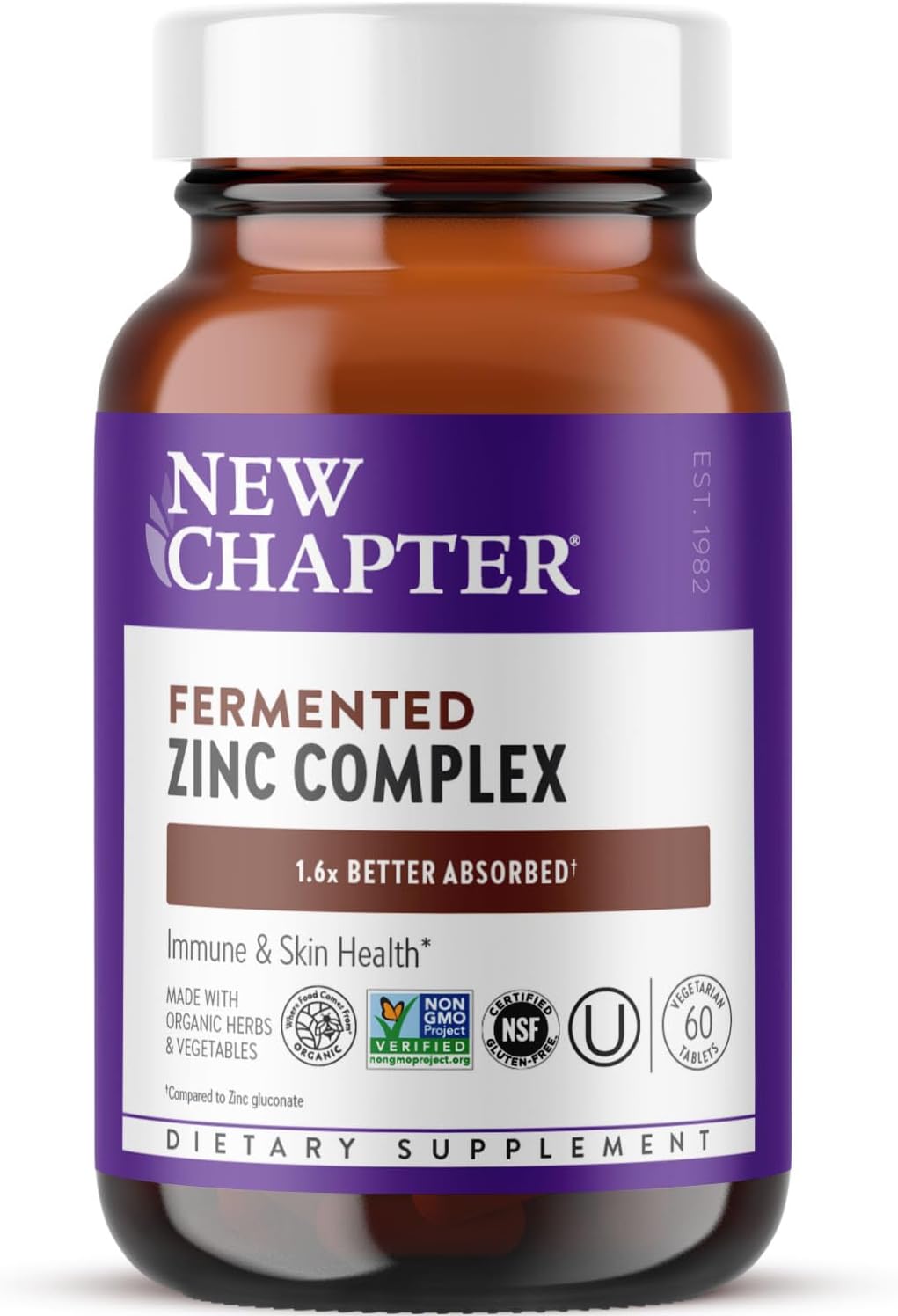








Price: $33.95 - $20.31
(as of Apr 06, 2025 21:41:38 UTC - Details)
What's the Best Time to Take Zinc? A Comprehensive Guide
Introduction
Zinc is an essential mineral that plays a crucial role in numerous bodily functions, from immune support to wound healing. However, many people often wonder, "What's the best time to take zinc?" This question is vital because the effectiveness of zinc supplementation can be influenced by when you take it, as well as what you take it with. In this article, we'll explore the best practices for zinc supplementation, helping you maximize its benefits.
We’ll dive into long-tail keywords such as “best time to take zinc for absorption,” “taking zinc with food or on an empty stomach,” and “zinc dosage timing.” By the end of this article, you'll have a clearer understanding of how to incorporate zinc into your daily routine effectively.
Understanding Zinc and Its Benefits
What is Zinc?
Zinc is a trace mineral that is essential for human health. It contributes to various bodily functions, including immune system performance, protein synthesis, wound healing, and DNA synthesis. Without adequate zinc, your body may struggle to perform these critical functions.
Why Do You Need Zinc?
Zinc is crucial for overall health. It helps maintain a strong immune system, supports growth and development, and promotes healthy skin. A deficiency in zinc can lead to a range of health issues, including weakened immunity, hair loss, and delayed wound healing.
Best Time to Take Zinc for Absorption
Importance of Timing
When considering the best time to take zinc, absorption is key. Zinc can be absorbed effectively when taken at the right time. Some studies suggest that taking zinc supplements on an empty stomach can enhance absorption. This means that the morning might be an ideal time for some individuals.
Morning vs. Evening
For those who prefer to take their supplements in the morning, it's essential to consider how zinc interacts with other nutrients. Taking zinc alongside vitamin C or certain amino acids can improve its absorption, making morning a favorable option for many. However, some people might experience stomach upset when taking zinc without food. In such cases, evening might be a better choice.
Taking Zinc with Food or on an Empty Stomach
Taking Zinc on an Empty Stomach
Taking zinc on an empty stomach can lead to optimal absorption. However, it's not for everyone. Some individuals may experience nausea or gastrointestinal discomfort when taking zinc without food. If you're one of these people, consider taking zinc with a light meal.
Taking Zinc with Food
On the flip side, taking zinc with food can help mitigate any stomach discomfort. However, certain foods can inhibit zinc absorption. High-fiber foods, legumes, and whole grains contain phytates, which can bind to zinc and reduce its bioavailability. If you decide to take zinc with food, try to avoid these high-phytate options.
Zinc Dosage Timing
Recommended Dosage
The recommended daily allowance (RDA) for zinc varies depending on age and gender. Generally, adult men should aim for around 11 mg per day, while adult women should aim for 8 mg. However, if you're considering taking a zinc supplement, it's crucial to consult with a healthcare professional to determine the right dosage for your needs.
Split Doses
For some individuals, splitting zinc doses throughout the day can enhance absorption. For instance, if you're taking a higher dose, consider taking half in the morning and half in the evening. This method can help maintain stable zinc levels in your bloodstream.
Potential Interactions with Other Supplements and Medications
Zinc and Other Supplements
When taking zinc, be mindful of potential interactions with other supplements. For example, calcium and magnesium can compete with zinc for absorption. If you're taking these minerals, consider staggering their intake.
Zinc and Medications
If you're on medication, consult your healthcare provider before starting a zinc supplement. Certain medications, like antibiotics, may interact with zinc, affecting its absorption and efficacy.
Signs of Zinc Deficiency
Recognizing Deficiency Symptoms
Understanding the signs of zinc deficiency can help you determine if supplementation is necessary. Common symptoms include:
- Frequent infections
- Hair loss
- Diarrhea
- Delayed wound healing
If you're experiencing any of these symptoms, it may be time to consider a zinc supplement.
Conclusion
In conclusion, the best time to take zinc largely depends on your individual needs and how your body responds to the mineral. Whether you choose to take it in the morning or evening, on an empty stomach or with food, the key is to find a routine that works for you while ensuring optimal absorption. Remember to consult with a healthcare professional for personalized advice, especially if you're considering higher doses or have existing health conditions.
By understanding the best practices for zinc supplementation, you can enhance your overall health and well-being. Don't overlook this essential mineral; it plays a vital role in your body's performance. So, make sure to incorporate zinc wisely into your daily routine.
ONE DAILY FORMULA: Easy to swallow, one-daily tablet delivers 136% DV of Zinc plus 167% DV of Copper for essential mineral balance. Can be taken anytime--even on an empty stomach.
SKIN HEALTH: Fermented Zinc supports healthy skin from the inside out, helping to maintain your skin’s integrity and resilience*
IMMUNE SUPPORT: New Chapter Zinc supports healthy immune system function with complementary herbs like Elderberry and organic Astragalus*
BETTER ABSORPTION: Clinical research shows fermented Zinc has 1.6x better absorption+ than the non-fermented form
Made with organic vegetables & herbs, Non-GMO Project Verified, 100% Vegetarian, Certified Gluten-Free by NSF, Certified Kosher, No Artificial flavors or colors, No Synthetic Fillers
